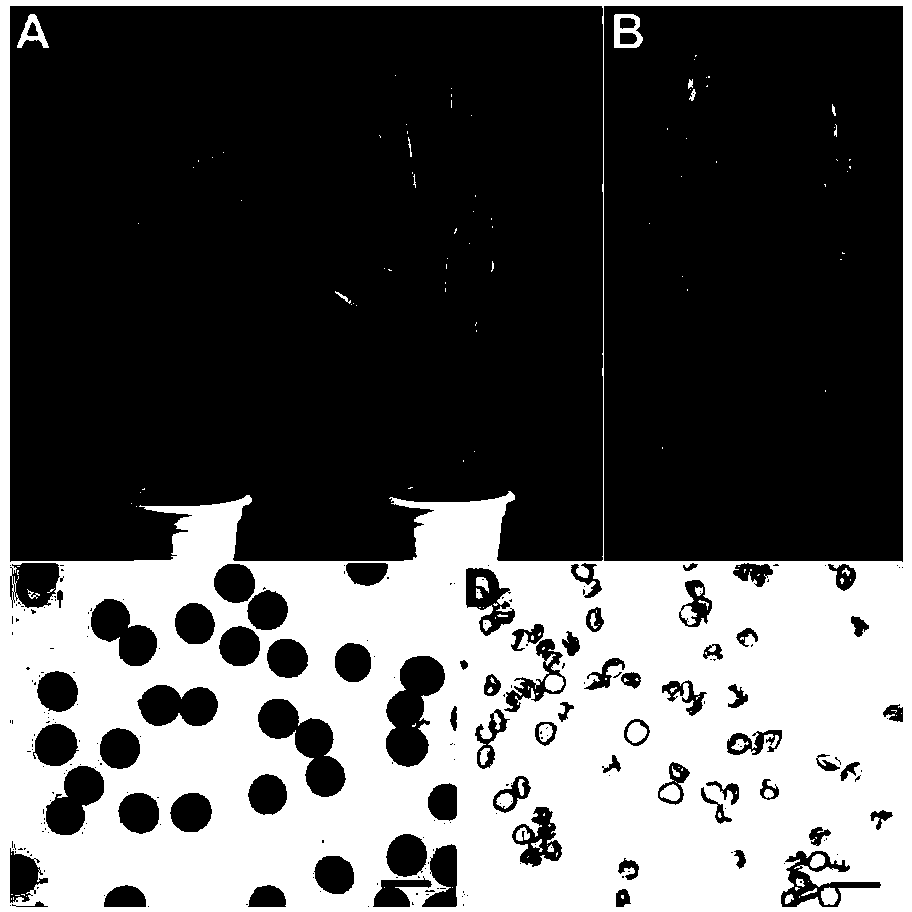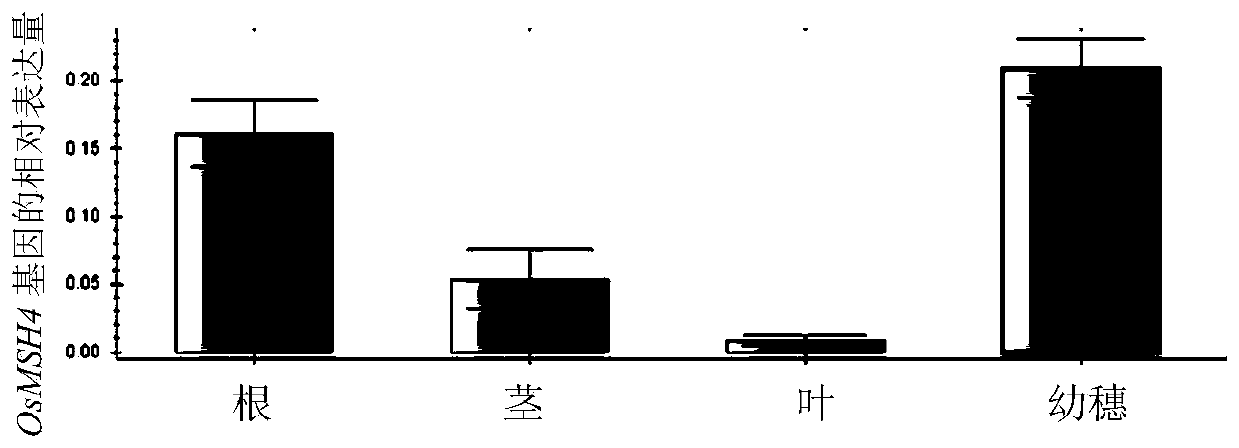Application of OsMSH4 protein and coding gene thereof in regulating and controlling plant pollen fertility
The technology of encoding gene and transgenic plant is applied to the application field of rice OsMSH4 protein and its encoding gene in regulating rice pollen fertility, which can solve the problems of difficult identification, costing a lot of manpower and material resources, and few spontaneous male sterile plants, etc. The effect of improving rice quality and increasing yield
- Summary
- Abstract
- Description
- Claims
- Application Information
AI Technical Summary
Problems solved by technology
Method used
Image
Examples
Embodiment 1
[0058] Example 1. Map-based cloning of OsMSH4 gene and its tissue-specific expression analysis
[0059] 1. Phenotype analysis of mutants
[0060] The inventor of the present invention is 60 A sterile mutant was found in the rice variety Zhongxian 3037 induced by Co radiation. Compared with the wild-type Zhongxian 3037 plant, the mutant had no significant difference in vegetative growth and flowering time ( figure 1 Middle A). After heading, the mutants showed typical sterile phenotype and eventually did not set fruit ( figure 1 Middle B). The mature anthers of wild-type plants are yellow, and the anthers are full of pollen, and the pollen uses I 2 -KI staining can turn blue, while the mature anthers of the mutant appear white, and the pollen is stained with I 2 -KI staining will not turn blue, and presents typical sterile pollen characteristics ( figure 1 Middle C and D). The inventors of the present invention granted the mutant to wild-type pollen, and found that it st...
Embodiment 2
[0092] Example 2, Osmsh4 mutant cytological phenotype analysis
[0093] 1. Cytological phenotype analysis in wild type
[0094] In the pollen mother cells of the wild-type rice Zhongxian 3037, the chromosomes were very thin and intertwined threads at the leptotene stage. During ditene, homologous chromosomes begin to pair and synapse. At the pachytene stage, the synaptonemal complex has been assembled, covering all homologous chromosomes, and at this stage, crossovers also begin to appear ( Figure 4 Middle A). At the end of the stage of degeneration, the chromosomes were extremely condensed into dots, and 12 ring-shaped or rod-shaped bivalents could be clearly seen ( Figure 4 Medium B). In metaphase I, 12 bivalents are neatly arranged on the equatorial plate ( Figure 4 Middle C). At anaphase I, the homologous chromosomes separate from each other and move to the poles of the cell under the traction of the spindle filaments ( Figure 4 Middle D), eventually forming two...
Embodiment 3
[0098] Example 3, Obtaining and Functional Identification of OsMSH4 Gene RNAi Rice Plants
[0099] In order to further confirm that the mutation of the OsMSH4 gene is the cause of the sterility of the mutant, the inventors of the present invention have carried out RNA interference to OsMSH4 to reduce or completely eliminate its expression, and further observe whether the phenotype of the RNAi plant is consistent with the phenotype of the mutant Osmsh4 unanimous.
[0100] 1. Construction of RNAi expression vector
[0101] Design the following RNAi primer sequences according to sequence 2 in the sequence listing:
[0102] OsMSH4 RNAi-F: 5'-ACTGAACTGTGGGGGAACTA-3' (positions 698-716 of SEQ ID NO: 2);
[0103] OsMSH4 RNAi-R: 5'-CTGATAAATGTTGCGAAGA-3' (reverse complement of positions 1093-1111 of Sequence 2).
[0104] Using primers OsMSH4RNAi-F and OsMSH4RNAi-R to perform PCR amplification, the cDNA obtained by reverse transcription of total RNA extracted from 5 cm spikelets of ri...
PUM
 Login to View More
Login to View More Abstract
Description
Claims
Application Information
 Login to View More
Login to View More - R&D
- Intellectual Property
- Life Sciences
- Materials
- Tech Scout
- Unparalleled Data Quality
- Higher Quality Content
- 60% Fewer Hallucinations
Browse by: Latest US Patents, China's latest patents, Technical Efficacy Thesaurus, Application Domain, Technology Topic, Popular Technical Reports.
© 2025 PatSnap. All rights reserved.Legal|Privacy policy|Modern Slavery Act Transparency Statement|Sitemap|About US| Contact US: help@patsnap.com



